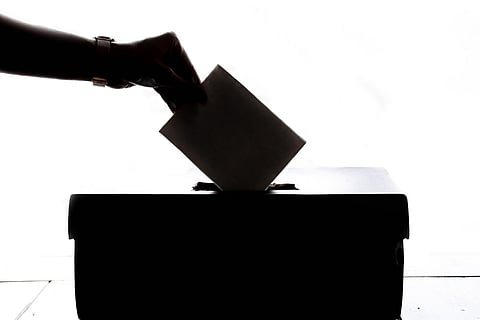
- News
- Columns
- Interviews
- Law Firms
- Apprentice Lawyer
- Legal Jobs
- हिंदी
- ಕನ್ನಡ

In the early hours of November 4th, President Trump announced his willingness to approach the Supreme Court to challenge the election results. Like many of the President’s pronouncements, this one prompted questions, controversies, claims and counterclaims. In what follows, we tried to briefly consider some questions on whether, how and when the Supreme Court could intervene in the electoral process.
Background
Although each U.S. state conducts its own popular vote election for President and Vice President, voters are actually voting for “electors,” who will then vote for a particular candidate for each office. Most states award all electoral votes to the candidate who receives a plurality of that state's popular vote. Each state has a differing number of electors, which equals the number of its representatives in the House of Representatives plus two electors for the senators the state has in the United States Congress. Any Presidential candidate who receives an absolute majority (i.e, 270 votes) of all electoral votes nationally wins the election.
Would litigation relating to the election go directly to the Supreme Court?
This is very unlikely. Under Article III of the U.S. Constitution, the original jurisdiction of the U.S. Supreme Court is limited to cases involving ambassadors, and to disputes between the states. So it is unlikely that the President, or anyone else, could directly approach the Supreme Court to intervene in an election. It is much more likely that such litigation would be initiated either in a federal district court, or in a state court, although it could ultimately find its way to the Supreme Court on appeal. Unlike India, the United States does not have a unified judiciary. Instead, a state judiciary operates in parallel to the federal judiciary, and each state has its own supreme court or supreme court equivalent.
What would the grounds for litigation be?
It is unlikely that President Trump would approach a court asking that it declare him the winner of the election. For one thing, state and federal courts with their limited territorial jurisdiction, would be unsuitable fora to determine the winner of a nationwide presidential election. It is much more likely that litigation in these courts will revolve around specific claims relating to the electoral process – such as state rules which determine which ballots are counted, or the manner in which a local election was conducted.
Rules instituted around balloting in response to the Covid pandemic may also be challenged. In some cases, the challenge may be that a specific balloting rule was created in response to Covid by a state official, such as a governor, rather than duly enacted by a state legislature. Another focus for litigation could be state rules around the acceptance of mailed-in ballots received after the polls have closed.
In fact, a number of issues relating to the 2020 elections have already been the subject of litigation. For example, the Texas Supreme Court recently handed down its decision on drive-through voting locations.
Is this a replay of Bush v. Gore in 2000?
Yes, and no. In Bush v. Gore, in response to a number of suits, the Florida Supreme Court ordered a statewide recount of certain ballots. The campaign team for George W. Bush applied for relief to the Supreme Court, which ultimately stayed the Florida Supreme Court’s decision and halted the recount.
As in Bush v. Gore, parties aggrieved by the decisions of subordinate federal courts or state courts on local or state electoral proceses may ultimately approach the Supreme Court. However, unlike Bush v. Gore, where the claims related to a single state, Florida, this year there have been close contests in a number of states, such as Michigan, Wisconsin and Pennsylvania.
As they are inexorably drawn into the electoral contest, Justice Stevens’ memorable closing observation in Bush v. Gore may well be in the minds of many U.S. judges.
“Although we may never know with complete certainty the identity of the winner of this year’s Presidential election, the identity of the loser is perfectly clear. It is the Nation’s confidence in the judge as an impartial guardian of the rule of law.”